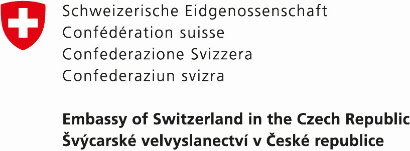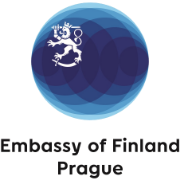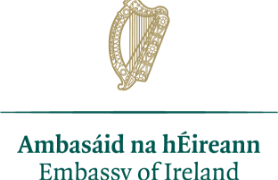Žirafí říše divů
Kniha přivádí dětského čtenáře do kouzelného světa plného nejroztodivnějších živočichů. Tím největším divem je ale nakonec lidské srdce – dokáže totiž natropit pořádnou neplechu a obrátit život naruby.
Kniha přivádí dětského čtenáře do kouzelného světa plného nejroztodivnějších živočichů. Tím největším divem je ale nakonec lidské srdce – dokáže totiž natropit pořádnou neplechu a obrátit život naruby.

Všechny vlaky na trati Zábřeh–Pardubice se zastavily kvůli srážce „s osobou“ a my získali hodinu dvě k dobru nebo ke zlu. Nepospíchali jsme, ale úzkost z vědomí, že kdesi vpředu děsivým způsobem zemřel člověk, smíšená s úzkostí z nehybnosti stojícího vlaku se na rozdíl od vlaku mohla dát každou chvíli do pohybu. Naštěstí jsme seděli ve vagonu se stahovacími okny a měli jsme v kupé studenta.
Švýcarsko je země neoddělitelně spjatá s komiksem. V Ženevě se totiž v první polovině 19. století komiks zrodil. Jak populární je deváté umění ve své…
Do italské Bologni se na jaře každoročně sjíždějí nakladatelé, literární agenti a scouti, autoři, ilustrátoři i grafici, knihkupci a knihovníci.…
Kniha přivádí dětského čtenáře do kouzelného světa plného nejroztodivnějších živočichů. Tím největším divem je ale nakonec lidské srdce – dokáže totiž natropit pořádnou neplechu a obrátit život naruby.
Všechny vlaky na trati Zábřeh–Pardubice se zastavily kvůli srážce „s osobou“ a my získali hodinu dvě k dobru nebo ke zlu. Nepospíchali jsme, ale úzkost z vědomí, že kdesi vpředu děsivým způsobem zemřel člověk, smíšená s úzkostí z nehybnosti stojícího vlaku se na rozdíl od vlaku mohla dát každou chvíli do pohybu. Naštěstí jsme seděli ve vagonu se stahovacími okny a měli jsme v kupé studenta.
Aleš Berný debutuje básněmi v próze protkanými melancholií, neustálým rozpomínáním se a posmutnělou nostalgií. K Helmovskému jezu jednou odpluje vše, jak pravidelně zmiňuje lyrický mluvčí – ale není tomu tak. Některé vzpomínky zkrátka vyblednout nedokážou.
Sci-fi román Michaely Merglové sice ve čtvrtek Literu za fantastiku nezískal, přesto stojí za přečtení. Zejména pro zajímavý koncept empatů, tedy lidí, kteří umějí číst, a dokonce i pohlcovat emoce a strachy druhých.
Švýcarsko je země neoddělitelně spjatá s komiksem. V Ženevě se totiž v první polovině 19. století komiks zrodil. Jak populární je deváté umění ve své domovině o dvě století později? Ptali jsme se Léonore Porchet, jedné z ředitelek festivalu BDFIL.
Milan Kundera se narodil 1. dubna 1929 v Brně. Pochází z rodiny významného hudebního pedagoga, klavíristy a rektora JAMU Ludvíka Kundery, což se projevuje v jeho celoživotním zájmu o hudbu; v mládí chtěl být dokonce víc skladatelem než spisovatelem.
L'ignorance (Nevědomost) je jedním ze tří románů, které Milan Kundera napsal francouzsky a u nichž odmítá svolit k překladu do češtiny. Vyšel nejprve v roce 2000 ve Španělsku, pak byl přeložen do několika dalších jazyků a až v roce 2003 ho vydalo nakladatelství Gallimard francouzsky. Kundera se v něm vrací k české tematice a využívá i svých zkušeností z exilu. Na internetu koluje několik pirátských překladů.
Sci-fi román Michaely Merglové sice ve čtvrtek Literu za fantastiku nezískal, přesto stojí za přečtení. Zejména pro zajímavý koncept empatů, tedy lidí, kteří umějí číst, a dokonce i pohlcovat emoce a strachy druhých.
Zavděčit se mnohdy rozpolcené společnosti, nepoškodit původní podobu sochy, dodržet zákon a správně plánovat – to, co běžným kolemjdoucím zpravidla zůstává skryto, se nyní máme šanci dozvědět!
Aleš Berný debutuje básněmi v próze protkanými melancholií, neustálým rozpomínáním se a posmutnělou nostalgií. K Helmovskému jezu jednou odpluje vše, jak pravidelně zmiňuje lyrický mluvčí – ale není tomu tak. Některé vzpomínky zkrátka vyblednout nedokážou.









